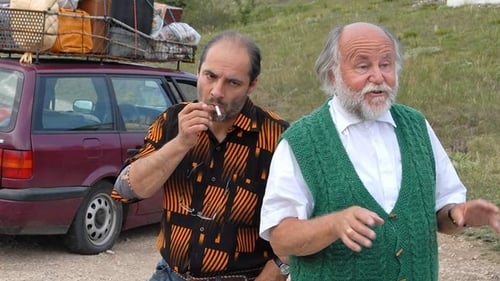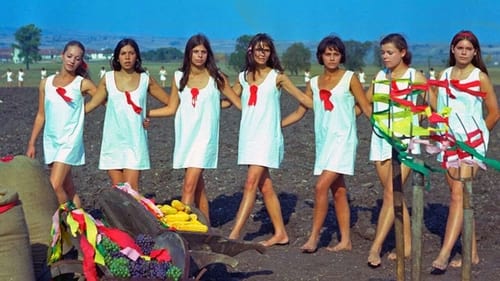
Mother of Professor Stephanus
A cardiologist is sent into retirement, but he feels at loss without his work. He returns to his home village to work as a general practitioner. This is the start of his ordeal: he's confronted with raw reality, which finally brings him to his knees. But music has the last word.

Julianna Márton
The story of a family spanning the 20th century.

Hungarian tales around the end of the regime(s).

Szukics anyja
1997. Young car mechanic Iván lives in a godforsaken village in eastern Hungary. He looks after his mentally disabled sister Eszter and earns extra money smuggling diesel oil from Ukraine. The siblings' coexistence is disrupted by a tragic event, Eszter is raped. A police investigation gets under way; in the meantime, Iván starts up a relationship with young Ilus, who has just finished school and is planning on going to the university. Iván plainly wants to leave his old life behind him, but will he be able to fulfill this ambition? - Written by Warsaw Film Festival

Karcsi, a Roma policeman, lives with Eva, a Swede. One day he is called to the scene of the murder of a wealthy trafficker named Schulter. He begins to investigate the crime, interrogate neighbours and suspects, and untangle a complex situation - one that he, himself, complicates even further. For he is a gypsy, who despite being adopted and raised by "regular" Hungarians, has his nose rubbed in his minority status every day. The film, which is based on the novel by Ákos Kertész, is a shrewd genre work full of dusky humour and surreal situations. Tabló follows a vivid succession of strange images that eventually lead to the emergence of the central story about a charismatic police officer on a tireless quest for the truth, though he must fight against virtually everyone and is just as fallible as the next person. Tabló makes a statement on the issue of race and racism - or, indeed, relations between any minority and majority.

Szomszéd

Lakástulajdonos
Lili and Pali are "chance" bank robbers, and perhaps "chance lovers" but they don't have the opportunity to pursue their relationship. With stolen money in their backpacks they are constantly on the run and everything seems to go wrong. As they seek refuge in a rundown industrial town they learn they are now famous and have been nicknamed Bonnie & Clyde. A contemporary look at youth in Eastern Europe trying to find truth in a world found on deception.

Mami
Kata, in her 20s, loses her boyfriend and her job on the same day. She's been indulging in fantasies of a more thrilling romantic life, and the cold water of being alone and unemployed doesn't entirely dampen her imagination. She's egged on by three girlfriends who get together to talk about men and sex. Kata has possibilities: she meets David, a medical student; there's Tamás, a stranger on a train who might be good for a relationship and a job. There's also Miki, her brother who's had serious drug problems. Is fulfillment within her grasp?

Pál Utrius is twenty three years old and in love with his sister.

Anna anyja

forklift man

Anya
It is a tragedy, set among low-lifes on the outskirts of Budapest. Dramatic Exchange describes it as "Widely considered to be the most important Hungarian play of the last 20 years". The odd title of the play refers in the first instance to the chicken heads that an old woman feeds to her cat. However, it can also be taken to refer more broadly to the obtuse behaviour of the main characters in the play. The play is an odd mixture of pathos and nihilism, written against the bleak background of Stalinist totalitarianism from which Hungary was emerging. As with much modern drama, there is no hero in the play. The only noble behaviour that one can find belongs to one of the characters in the past, when he was a child, but he is no longer as he was. The hint that what once existed might be achieved again is the only faint ray of hope in a very bleak view of the human condition.

Éva
This lavishly spectacular film focuses on the character of Lorinc Parcen Nagy from the 1200-page Tibor Déry novel interwoven with numerous autobiographical elements. Lorinc Parcen Nagy is the offspring of an upper middle class family, whose life is marked by two violent deaths: the suicide of his father and the slaughter of an innocent worker. He breaks with his family and his mother in disgust; she is of weak character, a person who abandoned her own husband. He is also unable to discover the right tone with his colleagues and his lover who is an illegal party worker.

The events of the story take place in the outskirts of working class people in the early nineteen fifties. Makra, a skilled worker in a factory, suddenly comes to close quarters with everything around him because his environment condemns and ridicules him for protecting a woman when his drunk fellows were going to rape her after his bachelor party.

Maid
Set in the 1890s on the Hungarian plains, a group of farm workers go on strike in which they face harsh reprisals and the reality of revolt, oppression, morality and violence.







